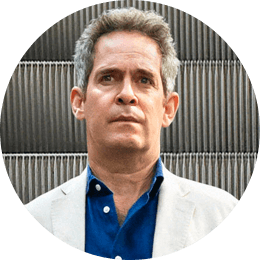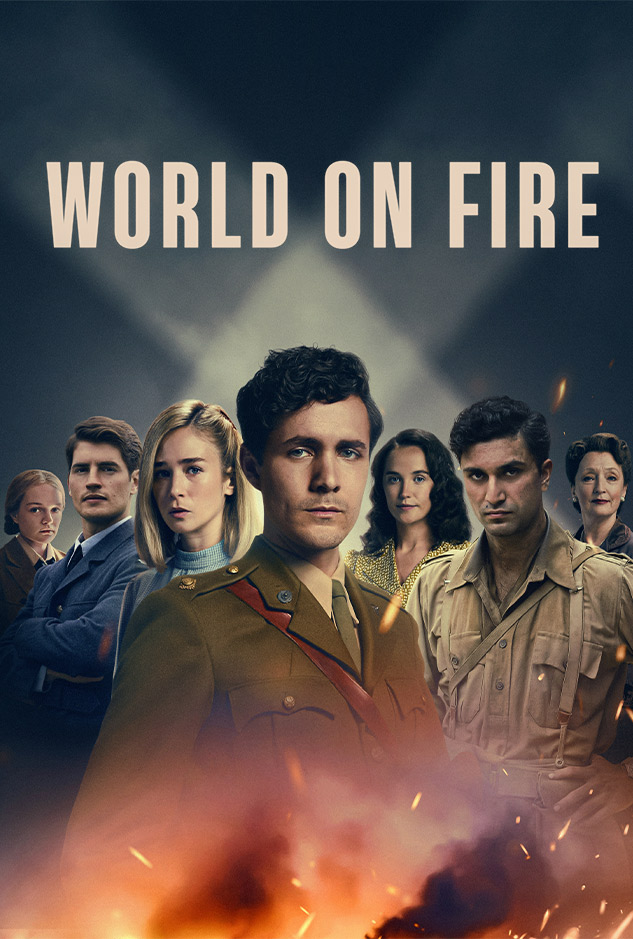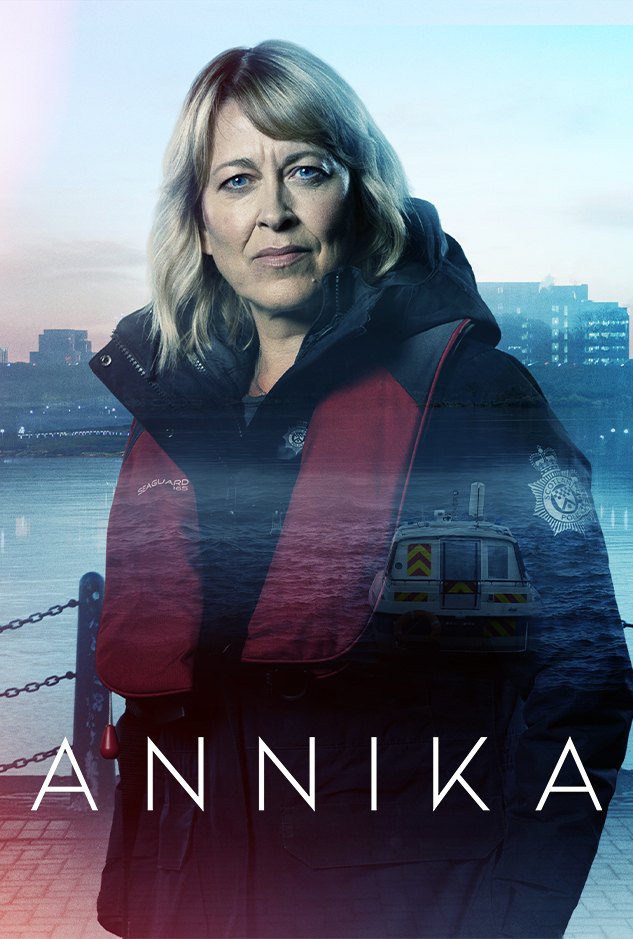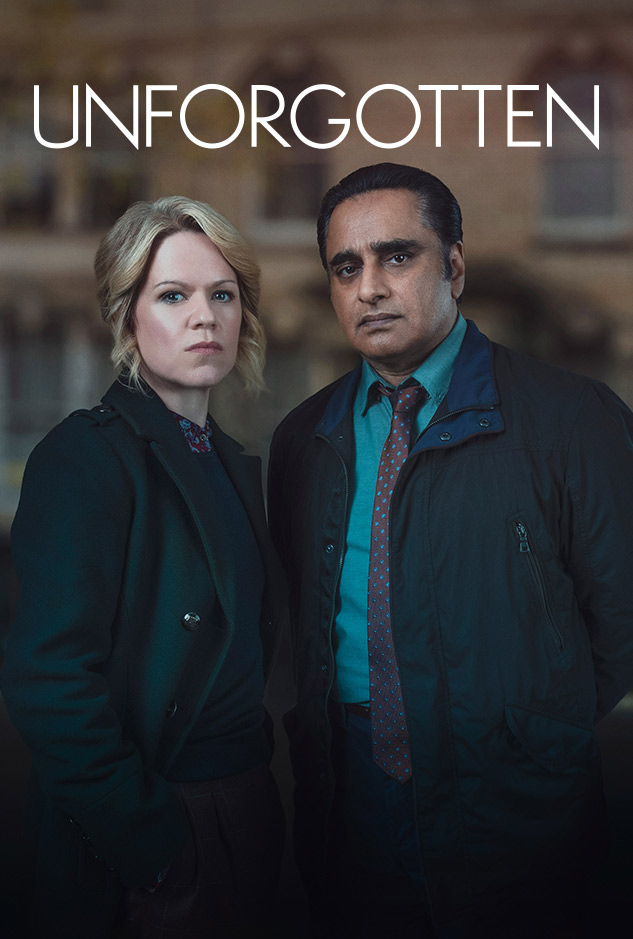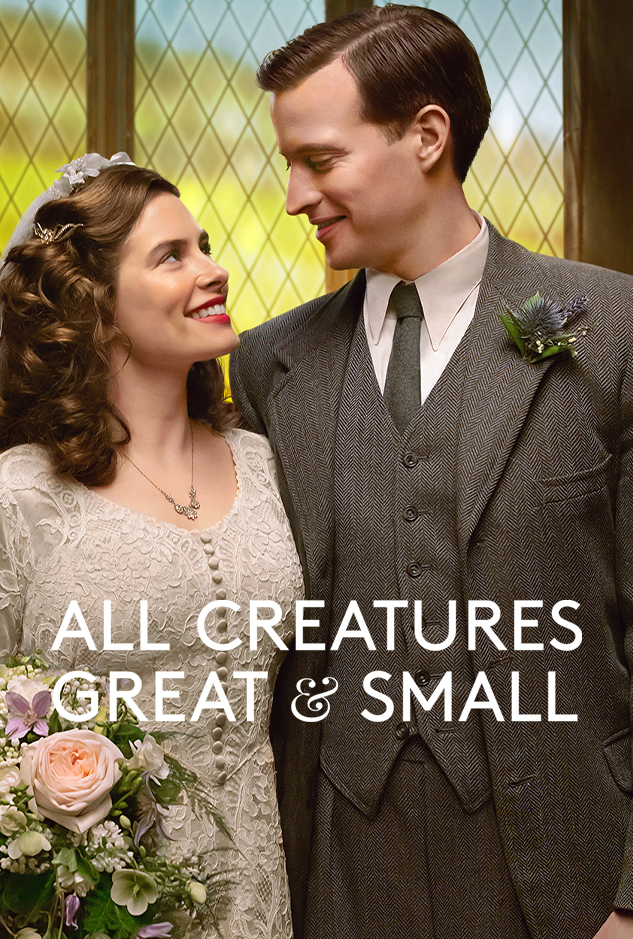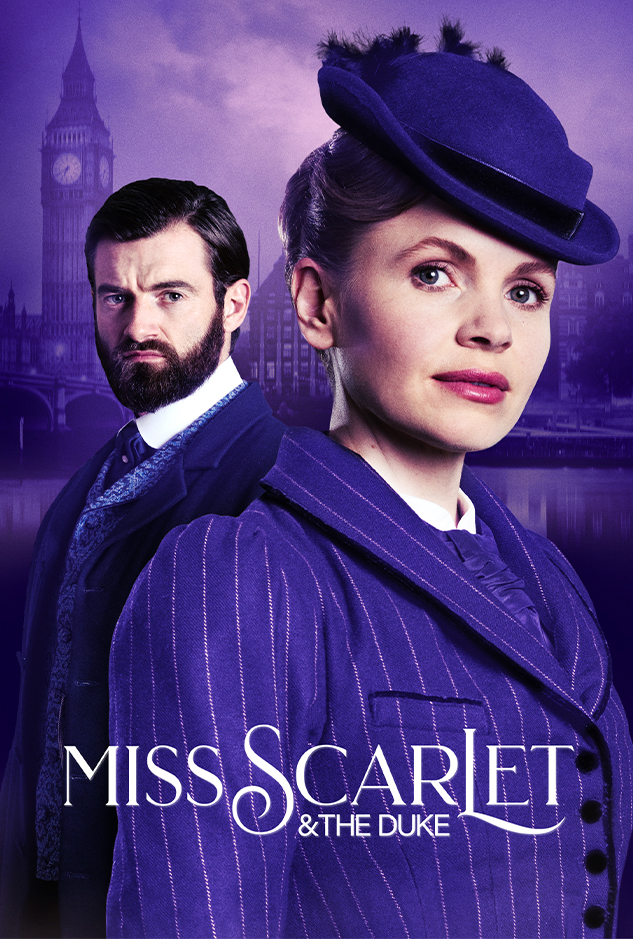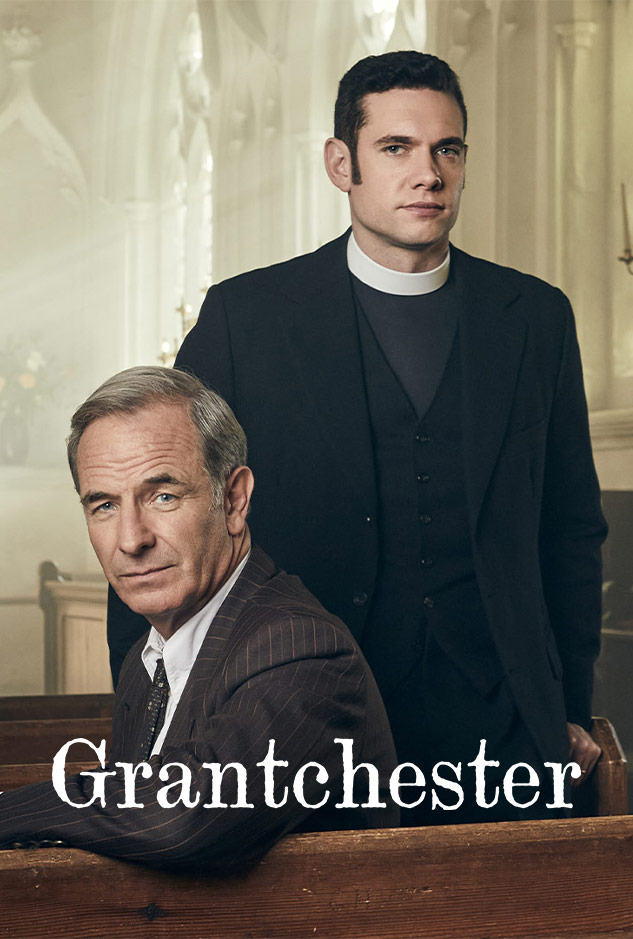Tom Hollander Interview: The Uncool Everyman in David Nicholls’ Us
British actor Tom Hollander stars as scientist, dad, and reluctant soon-to-be divorcé in the MASTERPIECE miniseries dramedy Us. He shares insights into the character he describes as “not remotely rock ‘n’ roll,” thoughts on how a marriage can end in compassion and hope, and more. Don’t miss Hollander’s genuine and witty take on this adaptation of David Nicholls’ bittersweet novel, Us. Missed Us or want to watch it again? Stream the entire miniseries with PBS Passport, an added member benefit.
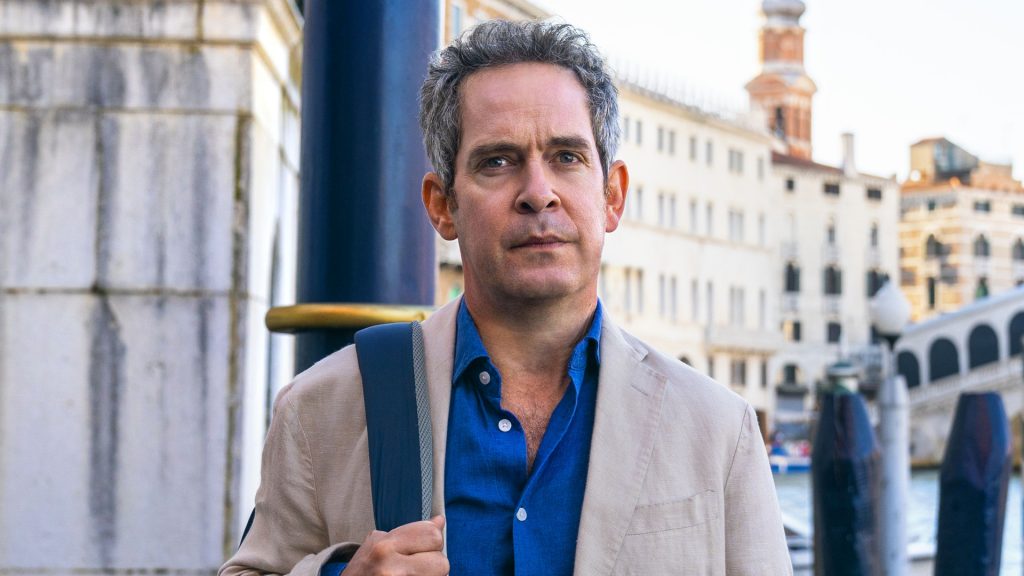

Us provoked a surprisingly strong response among many viewers (and MASTERPIECE staff) in its portrayal of parenting, marriage, and its aftermath. Many sided with either Douglas or Connie because of how they behaved with each other and how they treated Albie. For example, some felt that Douglas just wanted to protect Albie, while others thought he was kind of monstrous.
Funnily enough, since you say that about people thinking that Douglas was being a monster, I had that in the podcast. There was a sort of assumption, “Oh, Douglas is such a nightmare, isn’t he?” I have actually decided that he’s not that much of a nightmare. He’s just trying to do the right thing. He’s a good man. He’s annoying, he’s uncool, but he’s not a bad person. He’s a conscientious, good person—he’s just not remotely rock and roll. I mean, he is himself; he’s honest about being who he is.
Connie and Albie have had a relationship which has excluded him, and Connie has always felt that she was a bit cooler than him and possibly too good for him. You could launch a defense for Douglas, if you were having the debate—not that it’s of any consequence or meaning at all, but just for the fun parlor game bit—you could say that Douglas has been psychologically tortured for 20 years by someone who is gently disdaining him every moment of his life. And that’s not good for anyone’s mental health. I know people who’ve been in marriages for a long, long time who are slightly disturbed by the experience of being with someone who doesn’t respect them day in, day out. That’s not good for anyone.
So yes, he’s annoying, and yes, he’s possibly overly dogmatic about schedules, but who wouldn’t rather be with someone who was organized? It’s great to be free and fun and spontaneous, but it’s also really great to get on the plane that you’ve booked and not miss it…unless you’re fantastically rich, in which case, it doesn’t matter. But given that most people aren’t, it’s good to have a bit of order. I mean, parents, whatever form of parenting there is, they’re damned if they do and damned if they don’t and every parent lives, grows, to be criticized by their children for what they weren’t. Nobody can be everything. Nobody can play for every team. Nobody can be all things.
Having said that, the story is honestly showing you areas in which Douglas is not perfect and in which these people are not perfect, in which marriages are not perfect—and sometimes they end, but that’s okay. I think the show is supposed to be compassionate, ultimately, and it’s supposed to make us feel that a life can encompass a breakup without meaning that that life has been a failure or that that relationship has been a failure. In a way I think that the greatest contribution that Gwyneth Paltrow has made to civilization is surprisingly not her scented candles or even her acting—it’s the phrase “conscious uncoupling,” which however pretentious is quite compassionate and is okay. It removes the stigma of breakup and makes it seem like a positive thing, a positive choice rather than the consequence of terrible decision making or a disaster or something deeply dark and sinister. It’s okay.
I have a theory that the relationship really in need of saving is not Douglas and Connie; it’s Douglas and Albie. Do you agree?
Yes. No. Well, I suppose the first half, in a way, is about trying to save the marriage. The second half is about recovering his relationship with his son. My favorite scene—or perhaps my favorite scene to shoot—was the scene at the top of the steps in Barcelona where he sits with Albie. It was partly fun because Tom Taylor and I rehearsed it in the streets of Barcelona on the weekend together, just the two of us. Like many TV schedules, there wasn’t really any room for rehearsal, but because that was such a big scene, we found some time to just do it together and wandered off one morning on a Sunday and improvised it together. We found some different steps in a little park in Barcelona and we pretended we were the characters, and it was really fun. But the scene is very important, obviously, in that Douglas tells him he loves him—and he’s a man who’s not able to express his emotional life very well, that’s not his strong suit—so it’s very difficult for him. And it’s a bit of writing that’s very touching at that point.
It truly a very powerful scene, and one of the points in the show where I definitely teared up.
You know, there’s a lot about this show that is not hip, particularly, at this moment, in the current climate. But it is one of the most relatable shows that I have ever been involved in, and I only discovered that once it had been broadcast. People who connected with it, connected with it so strongly. Many people who’ve divorced contacted me to say how much it had touched them—this is all David Nicholls’ achievement, by the way, it’s in the book and it’s in the screenplay. People who are living ordinary lives found a lot to identify with in it. And that’s interesting for me, as an actor, to do, because a lot of the time you’re asked to be in an extraordinary world of exceptional behavior, exceptional people. When you’re acting, a lot of stories involve extremes. I mean, in the recent past, I have been playing a spy. There are far more spy actors than there are spies in real life. I play three different kings in the Kingsman film that’s yet to come out. There are far more actors playing kings than there are kings, possibly. I played the manager of one of the most famous rock and roll bands in the world, and so on and so on. Actors are very often asked to play weird things which are exciting. You name it: James Bond, Ben Hur, Spartacus—they’re all unusual, exceptional people, and even with historical characters, you tend to play the stars of life. So those are the ones that are deemed exceptional enough for dramatization. But this is a story about the kind of people who are in the crowd, people who are often just in the audience, not on the stage. Connie would like to have been on the stage but wasn’t. Douglas, I suppose he thought he was going to be an exceptional scientist, and he ended up working in an office. So like most people’s lives, it started with perhaps aspirations that were greater than what they achieved, and then that hope gets pushed into their child, who is burdened by it. It’s an everyday tale.
It’s a story of hope and what it takes to get there, and it takes trains and journeys in different cities, but I think the real journey is Douglas’. He says at the beginning he wants to change, and he does change, but not in the way that he had hoped to. And while over the course of his journey it’s not like the stations of the cross, he’s really stripped down in a lot of ways. Can you talk about his transformation and how it felt bringing it to life?
Well, hang on. I was much more enjoying your description of the story. It is a story of hope, you’re right, exactly. But what is his transformation? I genuinely can’t remember it. Does he have a transformation?
I think that he becomes able to open up. In the scene on the steps in Barcelona, he’s able to say “I love you” to Albie. He is able to let go—not in terms of being spontaneous about planning and partying in Amsterdam—he’s able to let go where it matters the most, overcoming his defenses. So I do feel like he transforms.
But he doesn’t change. He’s able to say that, I suppose, but he’s still so uptight on the beach that he has a heart attack. He then goes back to being himself. Albie allows him in a bit, and somehow they go through enough together to see each other—that happens. But I don’t know that I believe that Douglas changes. I think he gives up. Once he’s had a heart attack, he gives up trying to stop something from happening.
Maybe this is an answer that will work for you: It’s a story about someone who tries to control the thing that they think could be the worst possible thing that could happen to them, so they try and stop it happening, and they discover that they can’t stop it happening. He can’t stop Connie going and he also can’t stop Albie going. He can say “I love you,” and Albie can hear it and can at some level start to forgive Douglas, but he’s not going to stop Albie going either—Albie’s going on to Ibiza. He gets the opportunity to not be a [jerk] when Albie says, “I’m gay,” so there’s a moment where we go, “Ah, well that’s very sweet.” But then, is that Douglas having changed or is it just that Douglas would always have reacted like that?
I don’t think Douglas is a bad guy. He may be uptight and like thinking in straight lines and be a scientist. He loved Connie because she was an artist. He likes that. When he says to Albie, “Don’t be a photographer,” it’s not because he has no feeling or appreciation of photography; it’s because he’s a father who’s scared for his son on the statistical improbability of his son ever making a living. It’s as simple as that. He may be insecure or nervous anyway. He has to accept that he can’t control the uncontrollable. So in that sense, he gives up. I don’t think he is a transformed man.
I think maybe he’s listening more at the end. Having lost the battle, it’s the kindness that the vanquished somehow display, isn’t it? I think as you get older, among men particularly. How often do you experience the bully that turns into a sweet old man? And that’s not just a function of decrepitude. It’s partly because time spent on this earth generally involves a few defeats, and defeats, if they don’t make you bitter, can make you kinder. So I think in a way that’s what’s happened. I suppose if anything, he has it beaten out of him. When you say stations of the cross, that’s interesting. He’s tortured. Everything just keeps going wrong, doesn’t it? And he ends up in a police station with nothing. His controlling thing is not working, I suppose. And then he has a heart attack.
But what about when he looks at Albie’s art exhibit at the end and he’s able to really see it or see something different in it—maybe he’s not transformed, but I do feel like he’s grown.
Well, no. A year has passed. And if he’s transformed at the end, I think it’s because he’s met someone else, so he’s living a different life. He’s more relaxed, I suppose. So again, I just don’t believe that people become different people. I think they respond in different ways to different stimuli, and he’s in a different environment. He’s with someone with whom it’s easier. He gets on with Freja. He gets on with Freja better than he gets on with Connie. And so in that sense, he’s a different person. She transforms him. I suppose maybe that’s the answer.








